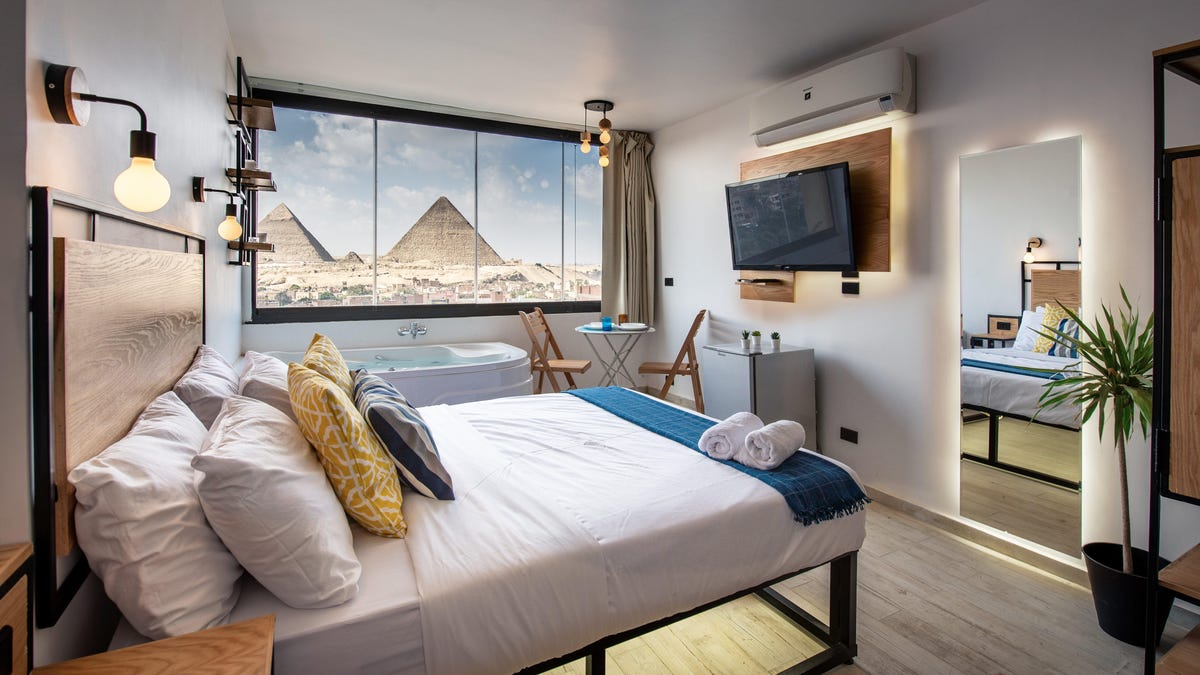All the Ways Airbnb Hosts Lie to You

Short-term rental platforms aren’t going anywhere, and when you think of short-term rentals, you think of Airbnb . But there are more and more reasons to avoid Airbnb like the plague . In addition to rising prices and poor customer service, Airbnb has been accused of destroying neighborhoods and not respecting your privacy .
One of Airbnb’s biggest problems is listings that don’t necessarily break any rules—not really a scam—but definitely trick you into renting a place you probably wouldn’t get otherwise, or trick you into overpay. This is how your Airbnb host can scam you.
Carefully staged, misleading photographs
The same tricks used in real estate listings can be applied to any Airbnb listing, including temporary staging, certain angles, and even outright photoshop. Low-resolution photographs also hide many imperfections, including cheap furniture and hard-to-see dirt . In extreme cases, such as this bad Paris travel experience , the photos posted with the listing may be old and not at all representative of the current state of the property. Yes, once it was a great place to sleep, but today it is a ruined dump.
List details omitted
Sometimes an Airbnb listing just doesn’t give you all the information. For example, this couple complained that they had rented what they thought was a separate house to have everything for themselves, only to discover that it was actually a guest house located in the backyard of the main house. They acknowledge that this could have been mentioned in the listing, but again, these tricks are not necessarily illegal or against Airbnb’s terms of use. They are just deceiving.
Another trick is not to mention that the property is divided. If you have an exclusive entry and no shared spaces, the listing may indicate that the entire “house” will be at your disposal . But there may be other levels with their own private entrance, so you’ll find yourself sharing a property and perhaps not using all of its amenities if some of them are exclusive to other divisions.
Videos can be deceiving too.
Videos may seem more reliable than still photos, but they can also be used to deceive without going into outright fraud territory. The easiest thing shady hosts can do is just crop the video carefully to leave out details that don’t match with the image they’re selling.
Take a look at this Airbnb Egypt video posted by TikTokker @aureliestory showing her walking through what appears to be a luxury apartment with breathtaking views of the pyramids. After seeing this video, you will naturally want to stay there and may be willing to pay high rent for it. But TikTokker colleague @MaxMakesMoney went to the same Airbnb and showed that while the view is real (and impressive), the rest of the apartment and its surroundings are nowhere near as glamorous. The apartment might have been worth renting for the sake of viewing, but the video itself was incredibly misleading.
The main thing to note is that there is no outright deception here – everything is done simply through a thoughtful attitude to what is actually captured in the frame. This should make you wary of every video you see about renting an apartment or house.
Exaggeration of the truth in listing descriptions
Sometimes the easiest way to get you to rent Airbnb is to just spruce up the listing description a bit. Here are some examples of common stretch marks:
- Refer to a walkway or open walkway outside the premises as a “patio” or “outdoor area”. It may even be technically true, but these hosts know what you represent.
- Noting that there is a laundry service on site, but forgetting to note that this is a shared laundry and costs money.
- List kitchen, which is actually just a microwave and refrigerator in the hostel.
- Describing a place as being “close” to the city center or cultural attractions without specifying exactly what “close” actually means.
Of course, this can be quite subtle, and there is a fine line between being creative and being misleading. But you’re paying money for a service – you should get something that looks pretty close to the description.
Your best defense against these practices are reviews left by other people and a little detective work on the Internet. Google Street View can sometimes give you a clearer idea of the area and even an idea of what the property actually looks like. Real estate websites such as Zillow may have older property listings that may have different photos or a more detailed description. To get some general idea of the problems people have with misleading listings, it’s always interesting to look through Airbnb Hell . It won’t help with specific research, but it may open your eyes to what you might encounter.